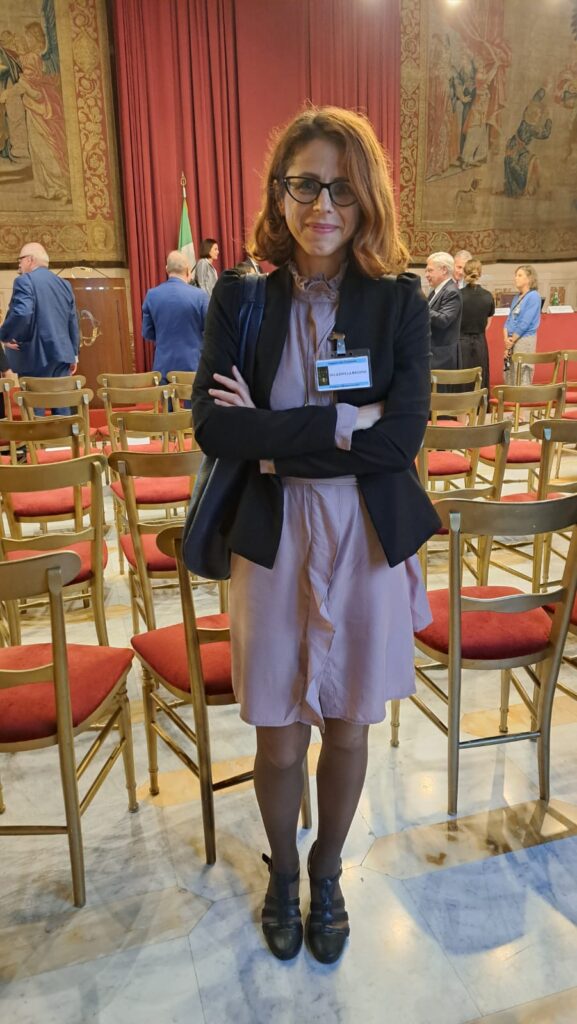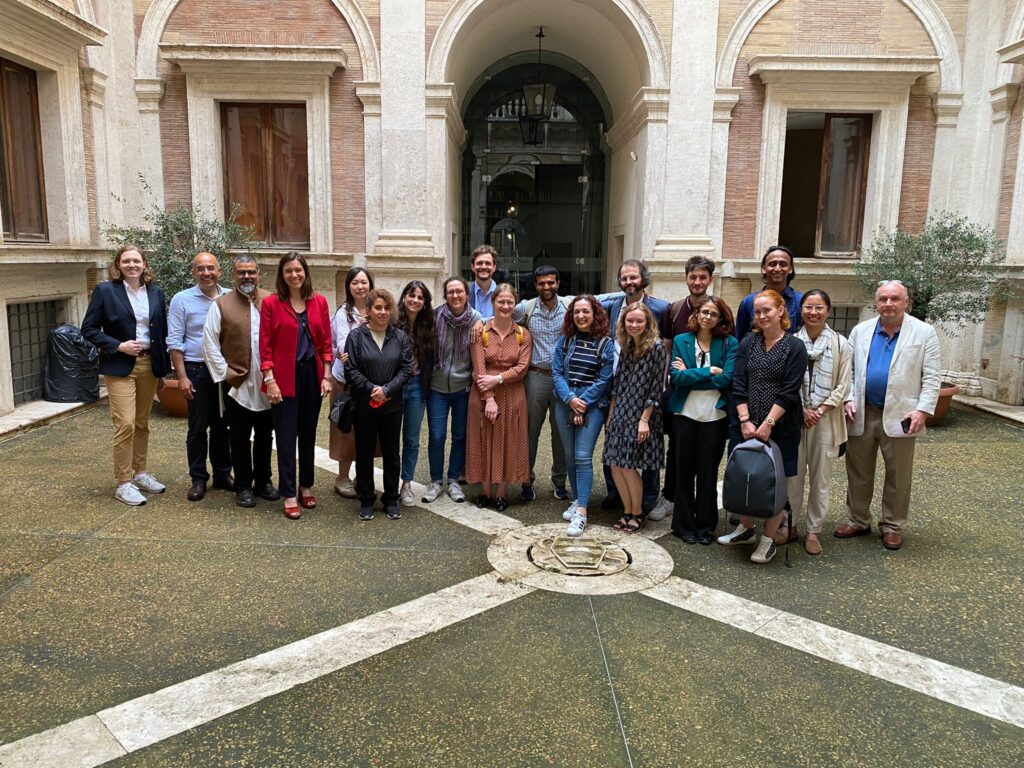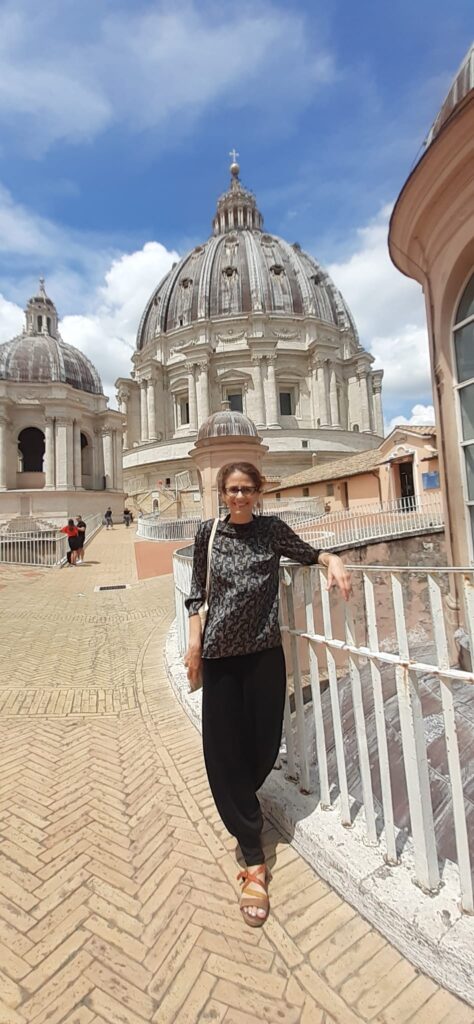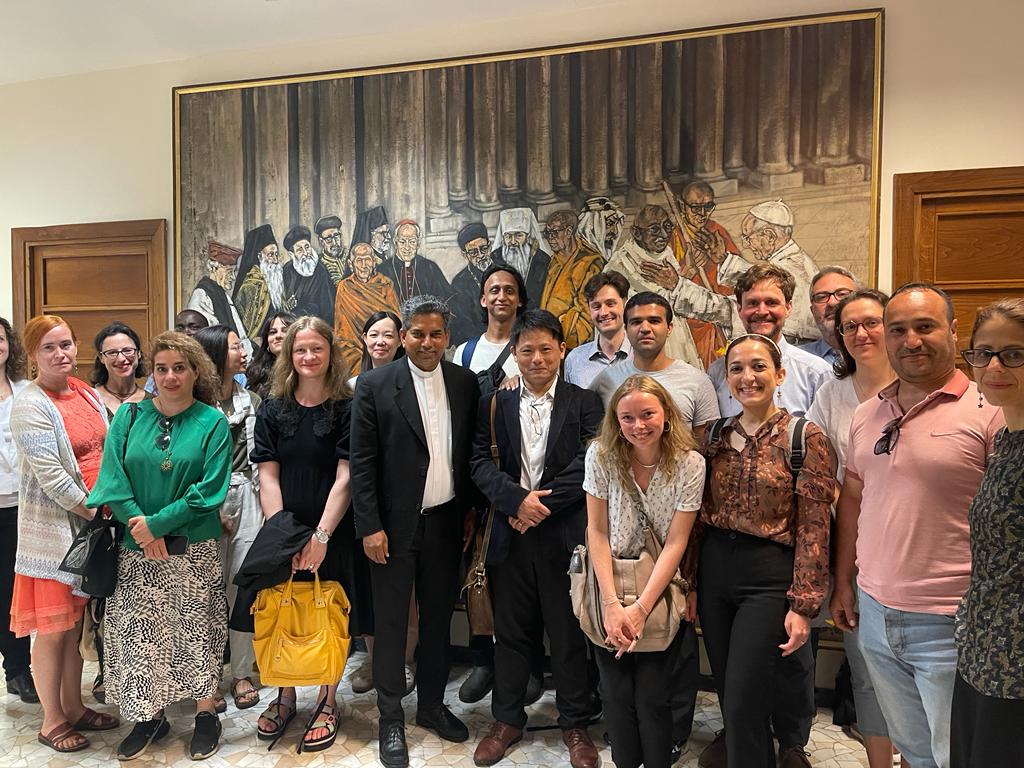JPII Leader Ana Petrache (Cohort XIII, Romania) received a grant from the JPII Center to join a group of scholars from around the world—mostly from secular universities based in the United States, the European Union, the Middle East, and South Asia—for two intense weeks of reflection on religion and politics.
The Rome Summer Seminars on Religion and Global Politics, held June 4-17 in Rome, began with a 10-day writing workshop for students, held at the University of Notre Dame Rome Global Gateway (RGG) near the Colosseum, and ended with a 2-day policy dialogue for senior scholars and practitioners, which the students could observe.
“The program was designed to encourage political scientists to engage more deeply with religious content in order to understand how religious actors think and act,” explains Ana, whose attendance at the Rome Summer Seminars was funded by the John Paul II Center for Interreligious Dialogue.

The program is by nature interdisciplinary and collaborative, bringing together academics, policy experts, and religious scholars as well as several institutions: the RGG, Keough School of Global Affairs and Ansari Institute for Global Engagement with Religion; the Pontifical Gregorian University (PUG); the Istituto per gli Studi di Politica Internazionale (ISPI); the Sinderesi Foundation; the Adyan Foundation of Lebanon; the Royal Institute for Interfaith Studies of Jordan; the Hanns Seidel Stiftung; and John Cabot University (JCU).
Elena Dini, Senior Program Manager for the JPII Center, was one of the invited panelists in a roundtable event entitled “Islam and Roman Catholicism and Political Defeat.”
“Compared with other IRD events, which are mostly the fruit of faith actors who want to meet and engage with other religious leaders, the Rome Summer Seminars were born out of the need for scholars and politicians to enforce multidisciplinary research concerning the interaction between religious and political actors,” explains Ana, “Greater knowledge in this field might help the reconciliation process in conflict zones—or even prevent certain conflicts altogether.”

Participants went on daily visits to a variety of religious and international institutions, such as the Foreign Embassies to the Holy See. “I realized how important the consultation process between religious and political actors is,” shares Ana, “Working closely with their communities, religious actors can often better address grassroots problems, and a more religiously-oriented approach can offer creative resources for solving crises.”

“I am particularly grateful for the opportunity to have received feedback on my presentation concerning the religious fundament of models of sovereignty from Kristina Stoeckl, specialist on Russian Orthodox Church (LUISS University), and Anna Rowlands, specialist on Catholic Social Teaching (Durham University). It was a great occasion to enlarge my political theology network and to engage with contemporary theologians such as Cyril Hovorun.”
Beyond an exceptional professional experience, the Rome Summer Seminars offered Ana several meaningful interactions and friendships; she recounts: “During our visit to Santa Maria in Trastevere, an Indian Muslim came to me and asked if I knew any prayers. After my positive answer, he asked me to pray for him and his family. I particularly like how he framed his request in a theologically correct manner: he did not ask to pray together but for me to pray for him. So I did; I asked the Mother of God that his own work in Christian/Muslim dialogue make a difference.”

